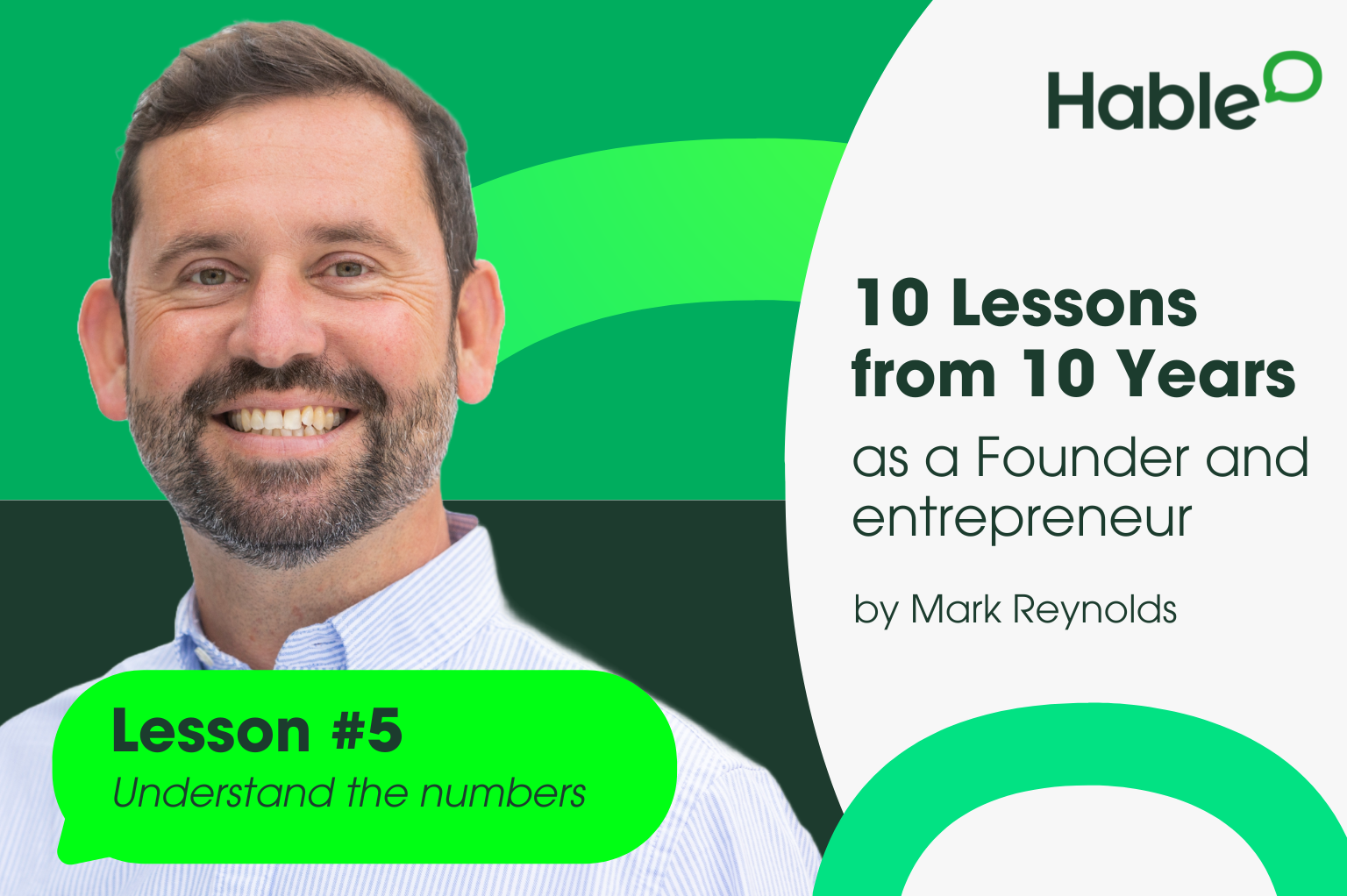
When I first started Hable 10 years ago, I felt like I had a real good grasp on the important stuff. I was clear on the purpose and direction, full of passion and ideas of what I wanted to achieve. And ultimately I really believed in the value we would bring to our customers. However, there was one crucial aspect I didn’t spend enough time on – which resulted in me/us getting burned a few times. I didn’t spend enough time understanding the numbers.
As I’ve said in previous posts I am a “big picture” type. I love inspiring people, being creative, talking to customers, coming up with new ideas. I am Yellow/Red on the Insights Colour Wheel – so being close to the detail is NOT me. And for big parts of the Hable journey, I didn’t have a 'Blue' to do that for me.
The result of that was me being very focused on the parts of the business that I was good, or enjoyed - and neglecting what some people would say is the MOST important part: the numbers. When things are going well and you have plenty of money in the bank, spending lots of time understanding our P&L didn’t seem too important. But when things get tough, and you need to make difficult decisions – then having good data and understanding some fundamentals is not just important; it's essential for the success and sustainability of any business.
I would speak to mentors or external advisors, and they would ask things like:
-
What is your most profitable solution?
-
What is the cost of sale, when acquiring a new customer?
-
Is your gross margin higher when you work direct, or as a sub-contractor?
-
How do you decide when the right time is, to hire a new consultant?
I would shift uncomfortably in my seat – and admit that I didn’t really know.
I made the classic mistake of thinking that as long as I was making sales, everything would be fine. I didn't pay much attention to my expenses, cash flow, or profit margins. If someone said “can I buy this on the company card?” I would often just say “yep” without a second thought. We always had an accountant – who would deal with the big stuff – Annual Accounts, VAT returns, payroll etc – but we were not paying them to be close to the detail. Now, I’ve got a fantastic Finance team who look after the numbers for me – and provide data to our Project Managers and other parts of the business. But if you’re a start up, and cannot afford that – you either have to learn it on your own, or pay someone to do it for you.
Using the numbers to make good decisions
Having a clear understanding of the numbers is the foundation of informed decision-making. You’ll hear people talk about “data driven decisions” - so even if that seems hard to you, I would encourage you to get out of your comfort zone and work hard on that approach. When you know your financials inside out, you can make strategic decisions that drive your business forward.
It also allows you to set realistic and achievable goals for your business. Whether it's revenue targets, profit margins, or growth milestones, having a clear understanding of your financials allows you to set goals that are realistic and achievable. Having well defined targets for your business is really important – we start each year with a set of priorities (not all of them financial) - which cascade down into measurable targets. It helps us stay focus and gives us something to work towards as a business. We couldn’t do this without being clear on the financial position.
Knowing the numbers also allows you to identify potential risks before they hurt you. You might identify areas where you're losing money and need to make changes. Or – you might see areas where you’re making fantastic profit and want to explore further opportunities! By regularly reviewing your financials, you can stay ahead of the curve and make proactive decisions.
Understanding the numbers also means learning from your mistakes. Learning from mistakes – and accepting financial losses – has been part of my journey, and I don’t think I would change that. Actually, maybe I’ve had preferred the lessons without the losses – but such is life! The important thing is that you understand where you went wrong as a business, and ensure that you don’t make those same mistakes again. It's a continuous learning process that helps you improve and grow your business.
So, don't neglect the numbers – especially if spreadsheets and data are really not “your thing”. Get someone who can help, or make an effort yourself. Learn from the numbers, and use them to drive your business forward.

